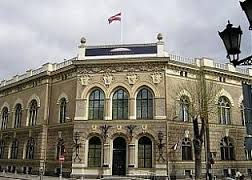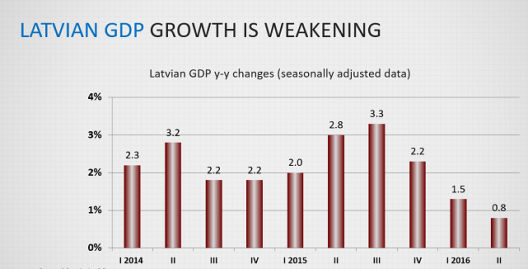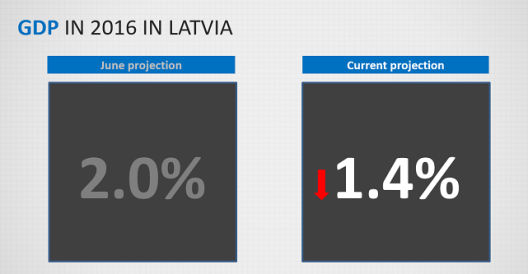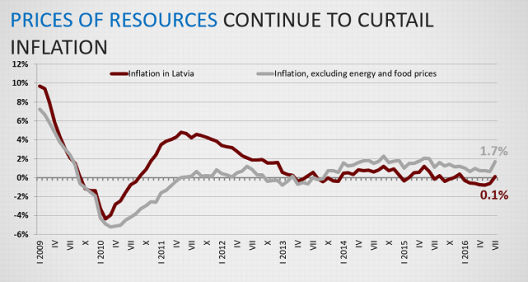Analytics, Banks, Direct Speech, EU – Baltic States, Financial Services, GDP, Inflation, Latvia, Statistics
International Internet Magazine. Baltic States news & analytics
Saturday, 27.04.2024, 05:17
Latvian GDP growth is weakining
 Print version
Print version |
|---|

After the very weak first quarter, it was hoped that, with the
restored accessibility of EU funds and thus resumed construction and
investments, the economy at large will be able to post vigorous growth.
Even though GDP growth increased quarter-on-quarter, the performance of
construction remained relatively poor and the situation was made worse
by the poor results in some service branches.
A positive piece of news was the very good performance of manufacturing in the second quarter of this year. That helped to increase export amounts despite the fact that the growth of foreign trade partners continues to be low. A good performance was the case also with branches that are mentioned more seldom – information and communication services and accommodation and catering or tourism branches. The very good performance of wholesale trade must be highlighted; it most probably was related more to increased foreign, instead of domestic, trade activity.

On account of the poor GDP data in the first six months of 2016, Latvijas Banka is forced to reduce GDP projections for 2016 from 2% to 1.4% according to seasonally adjusted data. In
2017, the economy could increase by 3.0% as a result of an increased
activity in EU financed investment projects – both in construction and
other branches – which were delayed this year.

As far as inflation trends are concerned, the 12-month inflation level in Latvia remains low, and the year-on-year increase in the harmonized consumer price index only in July, for the first time this year, became positive (0.1%). On 8 September, the Central Statistical Bureau published the national consumer price index data for August, which indicate that inflation, at 0%, remains very low. The 12-month inflation continues to be negatively impacted by the contribution of energy prices, but this impact has a tendency to decrease. In some months, oil prices rose slightly in the world market, and this lead to a reaction by the fuel business and the price of natural gas was raised for industrial consumers. World food prices have been growing for the most part this year, and in some food groups, price rises have been observed also in Latvian retail trade.
Core inflation (i.e. the average increase in prices in the part of the consumption basket that does not include energy, food, alcohol and tobacco) remained positive. Its rise in July was primarily determined by the raising of telecommunication service prices and housing management becoming more expensive as VAT basic rate was imposed on it. Such price changes tend to retain their influence in the year-on-year inflation for 12 months, for they do not have a seasonal character.
The decisions of the Public Utilities Comission on raising the regulated prices for heating energy, water and waste disposal services in some Latvian towns have also come into effect.
Yet the rate of economic growth as well as wage rises has slowed and does not motivate any rises in consumer prices. The impact of income on core inflation in the last few years may seem disproportionally low. The explanation may be that core inflation is influenced both by the costs or resources and consumer caution and tendency to save finances. In surveys, residents also express uncertainty regarding price level changes.
Thus, the aforementioned inflation raising factors notwithstanding, the average 12-month inflation this year will be around 0%.








 «The Baltic Course» Is Sold and Stays in Business!
«The Baltic Course» Is Sold and Stays in Business!

